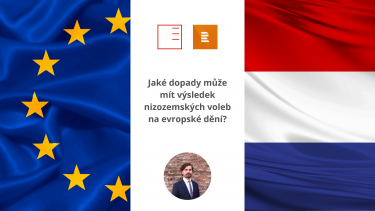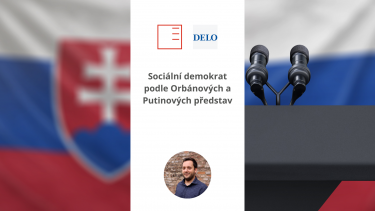Op-Ed | Subsidised fossil fuels are a major obstacle to solving the climate crisis. The Czech Republic and the world must confront it
One of the biggest obstacles to solving the climate crisis is fossil fuel subsidies. However, they have not received much attention in the Czech Republic. An Op-Ed on this topic was written by our Senior Research Fellow Kateřina Davidová.
Show more
ČRo Plus | What impact could the outcome of the Dutch elections have on European affairs?
Negotiations on the composition of the new government began in the Netherlands. It is not yet clear whether the winner of the vote, Geert Wilders, will end up joining it. How might the success of his Eurosceptic party affect the country's relationship with the European Union? Our deputy director Viktor Daněk commented on the outcome of the Dutch elections on Czech Radio Plus.
Show moreTV Nova | President Duda appoints Morawiecki to form new Polish government
Three weeks after Poland's parliamentary elections, President Andrzej Duda on Monday evening entrusted the incumbent Prime Minister Mateusz Morawiecki with the task of forming a government. Viktor Daněk, deputy director of the EUROPEUM Institute, discussed the issue.
Show moreČRo Plus | Party candidates for the European elections, end of subsidies for the renewable component of electricity prices
The deputy director of the EUROPEUM Institute, Viktor Daněk, appeared on the ČRo Plus broadcast today and selected interesting topics from the current editions of the morning press.
Show morePrávo | Tusk's death sentence over the V4
The alliance between the Czech Republic, Slovakia, Hungary and Poland is weakening more and more and the possibility of a Donald Tusk's government in Poland will certainly not help the V4 to come together again. Viktor Daněk, deputy director of EUROPEUM, commented on this topic for the newspaper Právo.
Show moreRTVS | Post-election negotiations in Poland
Polish president Andrzej Duda has begun post-election consultations about new government with the winner of the elections, Law and Justice, although it seems that oposition Civic coalition has a higher chance of forming a government. Our deputy director Viktor Daněk commented on the post-election negotiations and future of Poland in an interview with RTVS.
Show moreDELO: A social democrat according to Orbán and Putin's wishes
What could Robert Fico's return to the head of Slovakian government mean for the European Union? Žiga Faktor, director of our office in Brussels, commented on the topic on Saturday for the Slovenian newspaper DELO.
Show more
RevivEU
RevivEU project, carried out by four leading institutions in the V4 countries, looks at the needs, concerns and fears of the V4 citizens in four various EU-related topics. It does so through both quantitative and qualitative research of citizens´ attitudes towards climate change, migration, covid-19 and the rule of law. It also analyses the governmental policies in these four main areas and how the communication of these policies is framed in the public discourse.
Show moreEURACTIV | Sánchez's resigned government will probably manage the EU presidency, betting on small ambitions
The Czechs remember very well what it is like to preside over the EU Council without a stable government. The Spanish, however, have kind of counted on this scenario and their presidency is therefore not very ambitious. Nevertheless, they have to fulfill some important tasks. Read what Jana Juzová, Senior Research Fellow at EUROPEUM Institute, has to say.
Show morePolicy Paper | Quo Vadis? Ensuring fair taxation in the digital economy
In her policy paper, our Junior Researcher, Silke Maes, discusses the challenges posed by the increasing digitalization of the economy to tax systems. It highlights the problems of tax avoidance and competition arising from the increasing reliance on intangible assets and the emergence of highly profitable digital business models. The paper focuses on the efforts made at the OECD, EU, and national levels to address these issues.
Show moreStaroměstské náměstí 4/1
Prague 1 - Staré Město
110 00
tel.: +420 212 246 552
email: europeum@europeum.org
https://www.europeum.org








